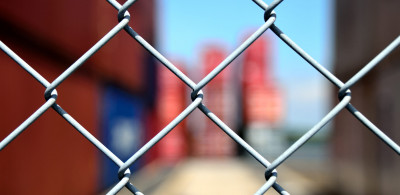We have all watched Border Security on TV and seen how travelers are routinely checked for smuggling everything from drugs to sausages. But what about the commercial importation of goods?
The Canada Border Services Agency (CBSA) is responsible for checking tens of thousands of commercial imports each day. To protect our borders, nothing is left unchecked including imports by courier or post as well as shipments arriving by rail, truck, air or in maritime shipping containers.
So what are they looking for?
As you might imagine, CBSA is definitely looking for contraband, drugs, alcohol, illegal firearms and weapons, but the agency is also charged with inspecting importations on behalf of numerous Other Government Departments (OGDs). These include Health Canada, Consumer Protection, Environment Canada, Canadian Food Inspection Agency, Energy Canada and Transport Canada. On behalf of these OGDs, it looks at things like labeling and packaging of consumer products, health and safety of imported food products, wood packaging and makes sure that imported goods comply with respective OGD regulations. It also validates that import declarations are not falsified and that any documents required, such as import permits, are present. CBSA tries to intercept goods that do not comply with Canada import regulations.
So why does it take so long and who is responsible for the costs?
In order for CBSA to inspect imported goods, these goods must first be made available for inspection. Hundreds of BSAs (Border Security Agents) are dispatched daily to warehouses, rail yards and marine terminals to begin the arduous task of opening, inspecting, counting, matching as well as reading and reviewing thousands of packages, boxes and containers. They must also read all documentation that accompanies these shipments.
Goods from warehouses and terminals are brought to the BSAs for inspection and then repacked in their original boxes and containers so that they can be delivered to the consignee. So if your marine container is on a vessel, CBSA must wait until the vessel is discharged and the container placed in a marine terminal. Your container must then reach the front of the queue for inspection. Manipulation of containers is very time consuming, sometimes taking days, and missing information or documentation can cause additional delays.
So who pays?
The Importer ultimately foots the bill for the inspection costs, if any. When warehouses or container terminals are required to unload goods for inspection and then reload, they charge for this operation. For ocean containers, this fee is usually around $1,000. Moreover, if your container remains in the terminal for 4 or 5 days while the inspection is being performed, storage fees may also apply.
Smaller shipments, such as those arriving by post or courier, usually do not require as much handling, so the opening and repacking can be done by the BSAs. In these cases, inspection charges are usually not applied.
It's understandable that importers may get frustrated when their shipments are delayed for days. This frustration may be further compounded when they also receive a massive bill for inspection and storage. However, it is the price to pay for having secure borders and protecting the public.
So what can be done to avoid costly delays?
It is impossible to completely avoid random inspections and spot checks. There are, however, ways that importers can minimize the frequency and length of time that their shipments get held up. A customs broker is able to advise you on many things you can do to minimize the time and expense associated with importing goods into Canada. These include making sure that you are compliant with all regulations regarding the type of product you are importing, that all packaging and labeling meets regulatory standards and that you have any necessary permits or licenses prior to importing your goods. You may also become part of one of the programs that CBSA offers such as PIP (Partners in Protection), which may help reduce the frequency of inspections.

